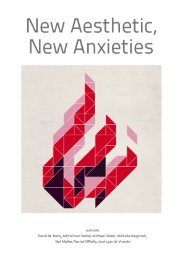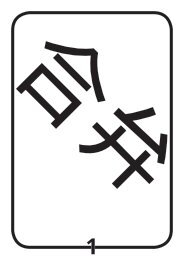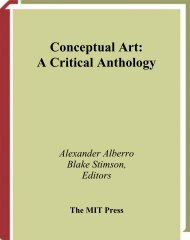You also want an ePaper? Increase the reach of your titles
YUMPU automatically turns print PDFs into web optimized ePapers that Google loves.
senses of identity, in concentric circles (provinces then nations). The idea of<br />
civilization, bit by bit, helps hold together opposites, whose only former identity<br />
existed in their opposition to the Other.<br />
During this period of invading nomads the passion for self-definition first<br />
appears in the guise of personal adventure. Along the route of their voyages<br />
conquerors established empires that collapsed at their death. Their capitals<br />
went where they went. 'Rome is no longer in Rome, it is wherever I am.' The root<br />
is not important. Movement is. The idea of errantry, still inhibited in the face of<br />
this mad reality, this too-functional nomadism, whose ends it could not know,<br />
does not yet make an appearance. Centre and periphery are equivalent.<br />
Conquerors are the moving, transient root of their people.<br />
The West, therefore, is where this movement becomes fixed and nations<br />
declan' themselves in preparation for their repercussions in the worlcJ. This<br />
fixing, this declaration, this expansion, all require that the idea of the root<br />
gradually take on the intolerant sense that Deleuze and Guattari, no doubt,<br />
meant to challenge. The reason for our return to this episode in Western history<br />
is that it spread throughout the world. The model came in handy. Most of the<br />
nations that gained freedom from colonization have tended to form around an<br />
idea of power - the totalitarian drive of a single, unique root - rather than<br />
around a fundamental relationship with the Other. Culture's self-conception was<br />
dualistic, pitting citizen against barbarian. Nothing has ever more solidly<br />
opposed the thought of errantry than this period in human history when<br />
Western nations were established and then made their impact on the world.<br />
At first this thought of errantry, bucking the current of nationalist expansion,<br />
was disguised 'within' very personalized adventures - just as the appearance of<br />
Western nations had been preceded by the ventures of empire builders. The<br />
errantry of a troubadour or that of Rimbaud is not yet a thorough, thick (opaque)<br />
experience of the world, but it is already an arrant, passionate desire to go<br />
against a root. The reality of exile during this period is felt as a (temporary) lack<br />
that primarily concerns, interestingly enough, language. Western nations were<br />
established on the basis of linguistic intransigence, and the exile readily admits<br />
that he suffers most from the impossibility of communicating in his language.<br />
The root is monolingual. For the troubadour and for Rimbaud errantry is a<br />
vocation only told via detour. The call of Relation is heard, but it is not yet a fully<br />
present experience.<br />
However, and this is an immense paradox, the great founding books of<br />
communities, the Old Testament, the Iliad, the Odyssey, the Chansons de Geste,<br />
the lslandic Sagas, the Aeneid or the African epics, were all books about exile and<br />
often about errantry. This epic literature is amazingly prophetic. It tells of the<br />
community but, through relating the community's apparent failure or in any<br />
Glissantj IPoetics of Relation/ /73








